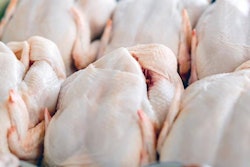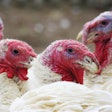The recent 65th National Breeders Roundtable in St. Louis was attended by geneticists from the primary poultry breeder companies, researchers and graduate students from several universities. This year’s presenters discussed a variety of topics associated with opportunities for poultry research and techniques that may be included in breeding programs. The National Breeders Roundtable is sponsored by the Poultry Breeders of America and U.S. Poultry & Egg Association.
Dr. Julie Long, research physiologist for USDA, updated the group on efforts to formalize cryopreservation techniques for turkeys. Along the lines of preservation, Dr. Alison Martin, executive director at The Livestock Conservancy, explained the Conservancy’s position on helping preserve and maintain rare breeds of all species, but focused on specific efforts and challenges with chickens.
Brad Lillie, financial officer for MacFarlane Pheasants, provided a presentation on the breeding program for meat pheasants and hunting stock—a welcomed view into the unique pheasant industry. A review of the available literature for stocking densities and effect on performance for turkeys was given by Dr. Marisa Erasmus, assistant professor of animal sciences for Purdue University, outlining the need for further research in this area; while a comprehensive field study reviewing the incidence of footpad dermatitis in turkeys by Dr. Jesse Grimes, poultry extension specialist for North Carolina State University, showed the effect of management on this health trait. Additionally, the effect of lighting programs on overall performance for broilers and turkeys was outlined and contrasted by Dr. Karen Schwean-Lardner, assistant professor for the University of Saskatchewan; and Dr. John Hickey, quantitative geneticist at The Roslin Institute, spoke about “Genomic Selection 2.0,” or the use of sequence data in estimating genomic breeding values.
The Roundtable again hosted a Student Research Poster competition during the evening reception. Eight excellent posters were on display, and the top three winners were announced at the meeting with each receiving a cash prize.
First place was awarded to Katy Tarrant, University of Arkansas, for her poster on “Predicting Ascites incidence in altitude-challenged broilers using single nucleotide polymorphisms.” Second place went to Sara Orlowski, University of Arkansas, for her poster on “Histological analysis of the pectoralis major muscle in broiler lines divergently selected for percentage four-day breast yield,” and third place went to Kaylee Rowland, Iowa State University, for her poster on “Genetic parameter estimation and genome wide association study for NDV response in chickens.”
Meeting highlights poultry genetics research and breeding programs
The recent 65th National Breeders Roundtable in St. Louis, Mo., was attended by geneticists from the primary poultry breeder companies, researchers and graduate students from several universities.
June 5, 2016















